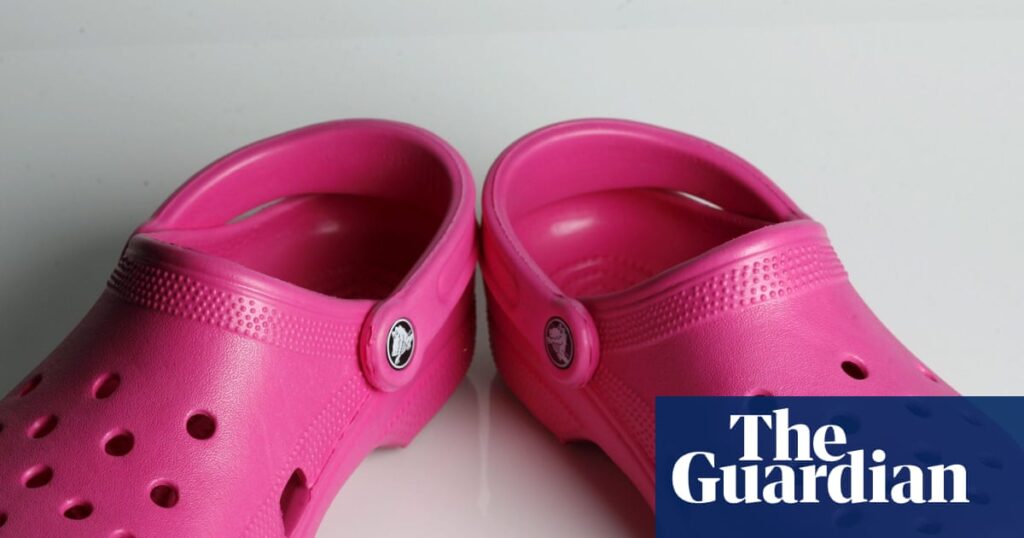Shares of the US footwear company Crocs have slumped by almost 30% after it warned of falling sales because of tariffs, “super cautious” US consumers and signs that fashion’s “ugly shoe” trend is coming to an end.
The foam clog and sandal maker’s shares fell by 29.2% on Thursday, after it predicted revenues could drop by between 9% and 11% in the current quarter, disappointing analysts who were expecting slight growth.
It also warned of a hit to profitability from Donald Trump’s tariffs – the latest wave of which came into force earlier that day – citing “continued uncertainty from evolving global trade policy and related pressures around the consumer”.
The share price plunge was its biggest one-day drop since 2011, taking its valuation to its lowest level for almost three years.
Andrew Rees, the chief executive, said there was “ample evidence” that some consumers in North America were “super cautious; they’re not purchasing, they’re not even going to the stores, and we see traffic down”. He explained that “already choiceful” Americans were worried about current and future price increases.
Rees described the environment in the second half of the year as “concerning” and said that was clearly reflected in orders from the company’s retail partners.
A cooling labour market, along with higher interest rates, rising inflation and uncertainty around Trump’s trade policies and his tax bill have led to Americans reining in their spending.
Once considered a fashion faux pas, sales of Crocs soared during the coronavirus pandemic when people sought out comfortable footwear, and a gold pair of Crocs appeared on the Oscars red carpet in 2021. Earlier this week, Microsoft launched special anniversary edition Windows XP-themed Crocs.
Crocs are made from a lightweight and odour-resistant special foam resin, and were initially marketed to sailors and water sport enthusiasts before they became more popular in the mid-noughties.
However, while Crocs have a broad appeal and are worn by celebrities including Drew Barrymore, Rees acknowledged that customer tastes were changing with a trend “back towards athletic” footwear in favour of sports brands, before the men’s football World Cup next year and the Los Angeles Olympics in 2028.
Susan Healy, the chief financial officer, said tariffs would result in a $40m (£29.8m) hit in the second half of 2025 and $90m on an annual basis based on the company’s current sourcing mix.
after newsletter promotion
Rees flagged a disproportionate impact of tariffs on its casual footwear HEYDUDE brand, acquired in late 2021.
He said the company was taking measures such as keeping a close eye on expenses and reducing inventory “to protect brand health and profitability”, and had pulled back on promotions since May.
The Broomfield, Colorado-based company fell into the red in the second quarter with a pre-tax loss of $448.6m, compared with a profit of $296.4m the year before. Revenues rose by 3.4% to $1.1bn.
McDonald’s said this week that US customers on lower incomes were cutting back on fast food to save money. On Thursday, the fashion company Ralph Lauren said that while it raised its full-year revenue outlook, it was “maintaining continued caution” on the global environment as it wanted to see “how consumers respond to the start of the fall holiday season and what will be an uncertain, potentially inflationary environment”.


